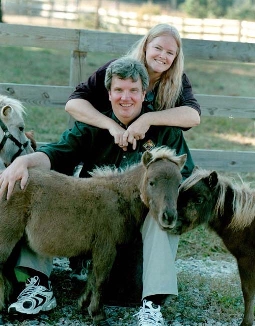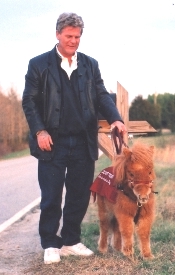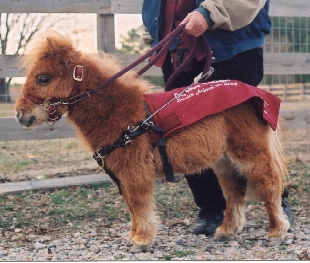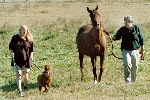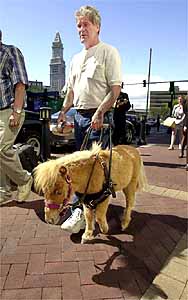|
|
The Guide Horse
Foundation A non-profit charity dedicated to providing free guides for visually impaired individuals. |
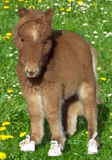 |
|
Horse Learning research from Professor Emeritus Frank A. Logan Doctor Logan is co-author of the landmark book Reward and Punishment, a Professor Emeritus of Psychology at the University of New Mexico, and the former chairman of the Yale University Department of Psychology. Professor Logan is currently building a database of the Laws of Learning. Here are Dr. Logan's thoughts on advanced horse training: In general, it appears that horses learn and perform much like most other animals. It does appear that some breeds are better than others, that young is better than old, and that distributed training is better than highly massed. I'm sure that, as with all animals, there is some "lore" including animal-human interaction effects but these things don't usually appear in publications. The current topic in animal learning is to take into consideration the species-specific responses in the animals' niche in nature. That is to say, one needs to pay some attention to what that particular breed/species does "naturally." For example, rats are good at running mazes and pigeons are good at pecking. Rats are good at auditory tasks, pigeons at visual tasks. As for improvement in learning, the most relevant data are called "learning to learn" or "learning set." But those data typically are restricted to a particular type of task. For example, when a monkey first learns a simple discrimination, it may take many trials. But as it is given more and more discrimination learning tasks with different objects, it eventually learns to solve such problems in a single trial. In the human learning literature, there is lots of evidence for positive transfer, which includes a general factor associated simply with the learning context in addition to a specific factor concerning the task at hand. In your case, for example, the horse has to learn that there is something it can do to control your behavior, and that emitting responses of some kind is appropriate. Research key: BNs = Behavioral and Neural Sciences EAB = Experimental Analysis of Behavior AnS = Journal of American Science OpR = Operant Response S/Genz = Stimulus Generalization Lmg = Achievement motive grid Research Results OGOVP.Dougherty,D.M.PLewis - -
'91. Peak shift in horses - - - - - - - EAB56: 97
DSOAP.Heffner,R.S.HEHeffner -
'86 Localization of tones by horses - BNs00:
93 SVOTL.Heird,J.C. et al - - - -
'81 Early experience on lrng w/horses
AnS53:204 SAOML.Houpt,K.A. et al - - - -
'82 Lrng w/orphan/normal foals - - - - AnS55:027 FAOGC.Houpt,K.A. et al - - - -
'90 Taste aversion lrng in horses - -
AnS68:234 DVOVL.Mader,D.R.BOPrice - - -
'80 Lrng as-f(breed/age) w/horses - -
AnS50:962 AAOAJ.Rubin,L. et al - - - - -
'80 Temporal distrib of trials - - - - AnS50:184 DAOVG.Sappington,B.F.Goldman -
'94 Lrng/concept formation in horses - AnS72:080 |

